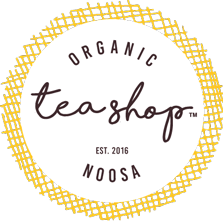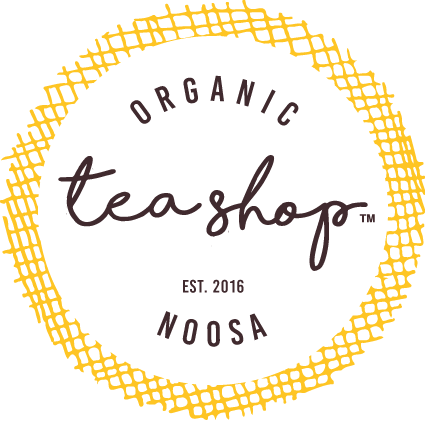15 May Are you a Rooibos fan yet?
One of our good friends here in Byron Bay gave us some welcome feedback on our organic rooibos after buying a tin at the Easter beachside markets.
‘The girls love it! They look forward to a cup each evening. They call it Lily’s tea’ (after our seven year old daughter).
Nat’s feedback prompted me to do some further investigation into the history and properties of rooibos (Aspalathus linearis). I knew that it contained no caffeine, very low levels of tannin and was a herbal infusion (not a true tea).
I’d also heard some claims of the health benefits that come from drinking rooibos and was keen to find out more.
Rooibos is indigenous to a small mountainous region in the Western Cape Province of South Africa. A small bush with needle leaves, it is the staple beverage of the Khoi people who bruise the harvested leaves to encourage oxidisation then steep the dried leaves in boiled water to produce the distinctive red colour and delicious flavour we recognise.
It is served in much the same way as traditional black tea- milk, sugar, lemon or honey is added to taste. Increasingly, it’s being served cold as an iced tea as well.
Rooibos aficionados claim some impressive health benefits derived from the antioxidants contained in rooibos. While some of these claims have been tested in laboratory conditions by scientists (particularly in Japan), others are largely untested, there is no doubt that the antioxidants quercetin, luteolin, aspalathin and nothofagin found in rooibos have been found to have significant antimutagenic, anticarcinogenic, anti-inflammatory and antiviral properties.
Simply put, these antioxidants may:
1. reduce our risk of heart disease
2. inhibit some parameters of aging by replenishing hair and skin cells
3. reduce the risk of certain types of cancer
4. protect our nervous system
5. regulate blood sugar and
6. reduce the output of adrenal hormones.
Additionally, high levels of calcium and manganese in rooibos may improve bone health when consumed regularly.
Whether you drink rooibos for these purported health benefits, or like Lily’s friends you just love the refreshing flavour, why not consider it as an alternative to your regular cup of tea!

